Modern catalysis
„AMU Invited Lecture Series in Modern Catalysis” is a cycle of lectures given by worldrenown experts in catalytic processes, organometallic chemistry, and synthesis, whose research belongs to the actual fast-developing trends in chemical sciences. The lecturers have been chosen according to their expertise in various aspects of catalysis: from traditional homogeneous catalysis with transition metal complexes, towards main group elements catalysis and organocatalysis to the application of new technologies, leading to increase the reactions productivity. The emphasis is placed also on process sustainability, selectivity, and effectivity. Chemistry at AMU is closely related to homogeneous and heterogeneous catalysis, as well as organometallic chemistry. There are several research groups working on catalytic processes, synthesis and mechanical investigations of reactions. The proposed series of lectures in Modern Catalysis meets the fertile ground for the development of new catalytic methodologies by AMU scientists, which might stimulate new ideas, build a strong network between researchers and open horizons to subjects concerning catalysis and sustainable development. Continuous progress in research, following new directions in science, and openness to innovation, which will be presented by selected experts in catalysis, can act as a flywheel for new projects and high-impact publications. Moreover, this series of lectures is addressed to young researchers – PhD students and MSc students, who will have a chance to listen to top lectures focused on catalysis. Having in mind, that more than 90% of processes, which are actually designed are based on the application of different types of catalysts (homogeneous, heterogeneous, organocatalysts, etc.), the series of lectures is Modern Catalysis is addressed to all chemists, from different specializations.
Single or Double? A Radical Approach to Frustrated Lewis Pairs
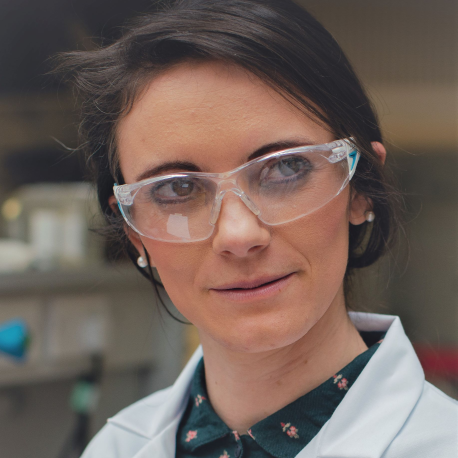
Rebecca Melen
Studied for her undergraduate and PhD degrees at the University of Cambridge, completing her PhD in 2012 with Prof. Wright. Following postdoctoral studies with Prof. Stephan in Toronto and with Prof. Gade in Heidelberg, she took up a position at Cardiff University in 2014, where she is now a professor. In 2018, she was awarded an EPSRC early career fellowship and she is the recipient of the 2019 RSC Harrison Meldola Memorial Prize. Her research interests lie in main group chemistry and the applications of main group Lewis acids in synthesis and catalysis. She is an author of almost 90 peer-reviewed papers in the most prestigious journals (e.g., Angew. Chem. Int. Ed., ACS Catal., Chem. Sci, Chem. Soc. Rev., Nature, Science, J. Amer. Chem. Soc.) Her h-index (based on Scopus) is 25.
Reagent, Ligand and Catalyst Design for Organic Synthesis

Josep Cornella
Graduated in chemistry in 2008 from the University of Barcelona and carried MSc studies in the Department of Organic Chemistry studying the chemistry of allylboron reagents. Then, he moved to the UK to pursue doctoral studies in the group of Prof. Igor Larrosa (QMUL). In early 2012, he earned his PhD working on the use of aromatic carboxylic acids as aryl donors in metal-catalyzed decarboxylative reactions. He then moved back to Catalunya, where he joined the group of Prof. Ruben Martin (ICIQ) as a Marie Curie Postdoctoral Fellow. There, he developed novel transformations involving Ni-catalyzed C–O bond activation and carbon dioxide insertion into organic molecules. In 2015, he obtained a Beatriu de Pinós Fellowship to carry out further postdoctoral studies in the group of Prof. Phil S. Baran at The Scripps Research Institute, California, USA. In spring 2017, he was appointed as a Max Planck Group Leader in the Department of Organometallic Chemistry at the MaxPlanck-Institut für Kohlenforschung in Mülheim an der Ruhr, Germany. He obtained a lot of awards (e.g. Novartis Early Career Award 2021) and a lot of grants (e.g. ERC – starting grant) His research is focused on basic catalytic alternatives to TM-catalysis, which secure sustainable and environmentally friendly approaches in organic chemistry.
Bespoke Bimetallics for Chemical Cooperativity
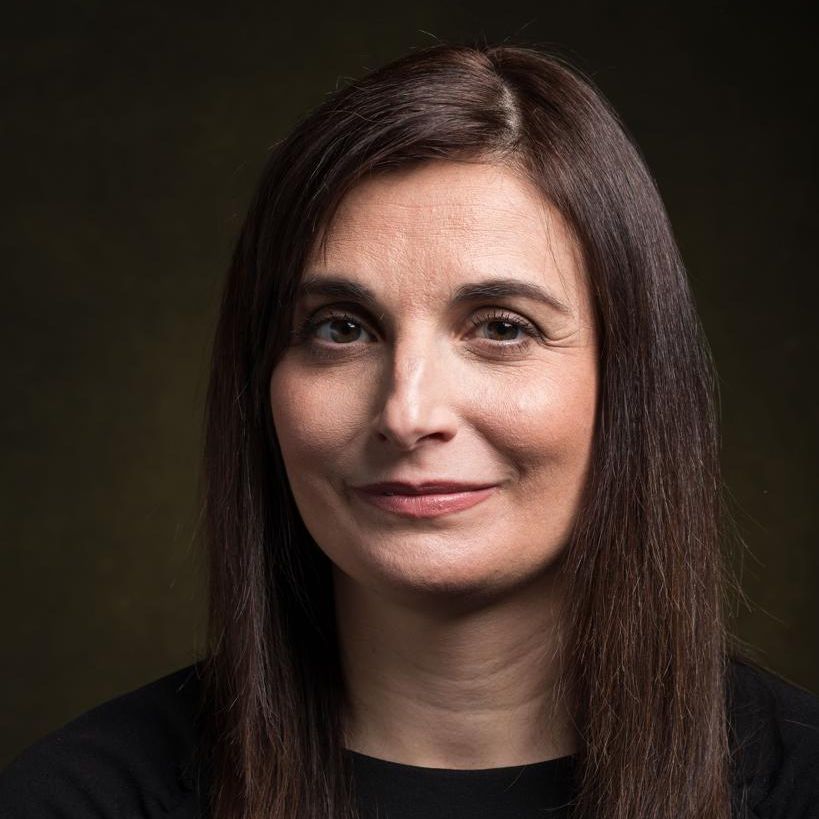
Eva Hevia
Received both her MSc degree in Chemistry and her Ph.D. degree from the Universidad de Oviedo (Spain) in 1998 and 2002 respectively. The latter under the supervision of Victor Riera and Julio Perez. After a three-year postdoctoral period at the University of Strathclyde working with Robert Mulvey, as a Marie Curie Fellow, in 2006 she took up a Royal Society University Research Fellowship and Lectureship there. Subsequently she was promoted to Senior lecturer in 2010, Reader in 2011 and Professor in 2013. In 2019 she moved to the University of Bern where she is currently a Professor in Inorganic Chemistry. She has published over 150 peer-reviewed papers (h-index 38) and to date her research has been recognized with several prestigious prizes including the 2016 SRUK Emerging Talent Award, which honours the most promising Spanish scientist in the UK under 40.
Advanced Concepts for Catalysis in Synthesis and Flow Chemistry
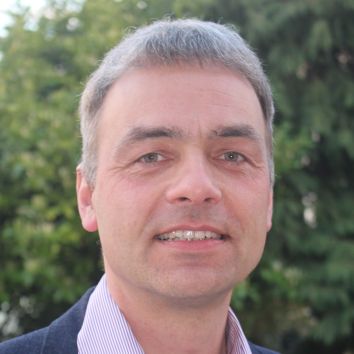
Thomas Wirth
Professor of organic chemistry at Cardiff University. After studying chemistry in Bonn/Germany and at the Technical University of Berlin/Germany, he obtained his PhD in 1992 with Professor S. Blechert. After a postdoctoral stay with Professor K. Fuji at Kyoto University a JSPS fellow, he started his independent research at the University of Basel/Switzerland. In the group of Professor B. Giese he obtained his habilitation on stereoselective oxidation reactions supported by various scholarships before taking up his current position at Cardiff University in 2000. He was invited as a visiting professor to a number of places including the University of Toronto/Canada (1999), Chuo University in Tokyo, Osaka University). He was awarded the Werner-Prize from the New Swiss Chemical Society (2000), the Furusato award from JSPS London (2013) and the Bader Award from the Royal Society of Chemistry (2016). In 2016 he was elected as a fellow of The Learned Society of Wales. His main interests of research concern stereoselective electrophilic reactions, oxidative transformations with hypervalent iodine reagents including mechanistic investigations and organic synthesis performed in microreactors. He is an author of more than 240 papers (h-index: 64).
Electronically Asymmetric and Proton Responsive Ligands in Organometallic Catalysis
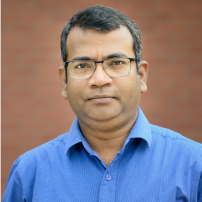
Jitendra K. Bera
Received his M. Sc. from University of Kalyani in 1993 and his Ph. D. from Indian Institute of Science, Bangalore in 1999. After a couple of postdoctoral stints at Purdue University and at Texas A&M University, he joined the faculty at IIT Kanpur in 2003. He is fellow of the Indian Academy of Sciences (FASc) and National Academy of Sciences (FNASc). Bera's research interests span synthetic, structural and mechanistic organometallic chemistry. Recent efforts are directed toward bifunctional activation of small and abundant molecules and their catalytic transformations to useful and value-added chemicals. Actually, since 2021 he is a head of Department of Chemistry in Indian Instutute of Technology. He is a member of editorial advisory boards of Dalton Transactions and Organometallics and associate editor of Applied Organometallic Chemistry (since 2018). Co-author of more than 110 papers, h-index 29.
Cobalt-Catalyzed Selective Multi-Borylation of Unsaturated Hydrocarbons
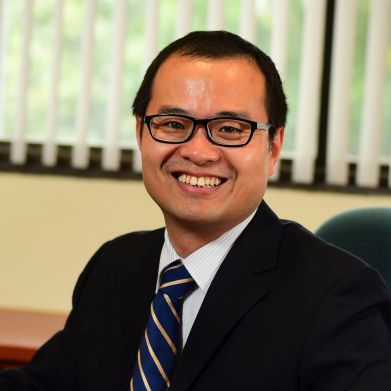
Shaozhong Ge
received his B.A. in polymer chemistry from University of Science and Technology of China (Hefei, Anhui) in 2002. Then, he moved to Finland to start an international master's program in Åbo Akademi University and got his M. Sc. in chemical engineering in 2004, developing group IV (Zr and Hf) metallocene catalysts for olefin polymerization. Then obtained his Ph.D. degree in 2009 from University of Groningen under the supervision of Prof. Dr. Bart Hessen, carrying out research on organo rare earth metal catalysts for olefin functionalization and polymerization. From 2010 to 2014, he worked for Prof. John F. Hartwig as a postdoc research associate, developing nickel- and palladium-catalyzed (asymmetric) C-C and C-N cross-coupling chemistry in University of Illinois at Urbana-Champaign and University of California at Berkeley. In January of 2015, he joined the Chemistry Department at National University of Singapore as an Assistant Professor, and was promoted to associate professor with tenure in January of 2021. He is an author of several papers in top journals (e.g., Angew. Chem. Int. Ed., J. Am. Chem. Soc., ACS Catal., Chem. Sci, Nature Com.), h-index: 26. Ge group research focuses on the development of practical TMcatalyzed chemical transformations that address unsolved challenges in synthetic methodology and organic synthesis (especially for pharmaceutical industry).





